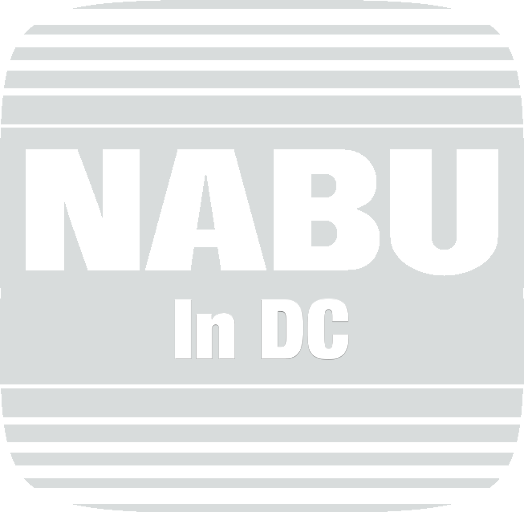How it all got started
I, like about 98% of the retro-computing community who lives outside of Ottawa, Canada, have never heard about the NABU computer until that YouTube video by Adrian at Adrian's Basement came out. It was uploaded eight hours before I got to see it. When I saw it, I was amazed at how stylish and well built it was. It truly had the 80s chic to it. Also, the fact that it was similar to MSX made it even more appealing to me. When Adrian announced that someone was selling on eBay, I immediately went there and bought it, not even bothering to watch the rest of the video. I'm a fan of MSX, so getting it was no brainer. And it was a good thing I did, because the next day, eBay blocked the listing, due to a backlog of orders.
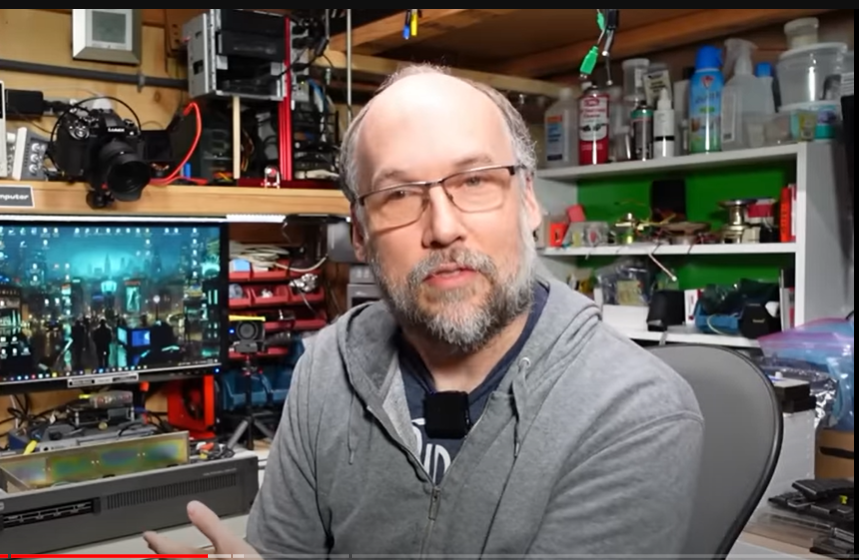
The guy who unintentionally started the NABU craze in the community.
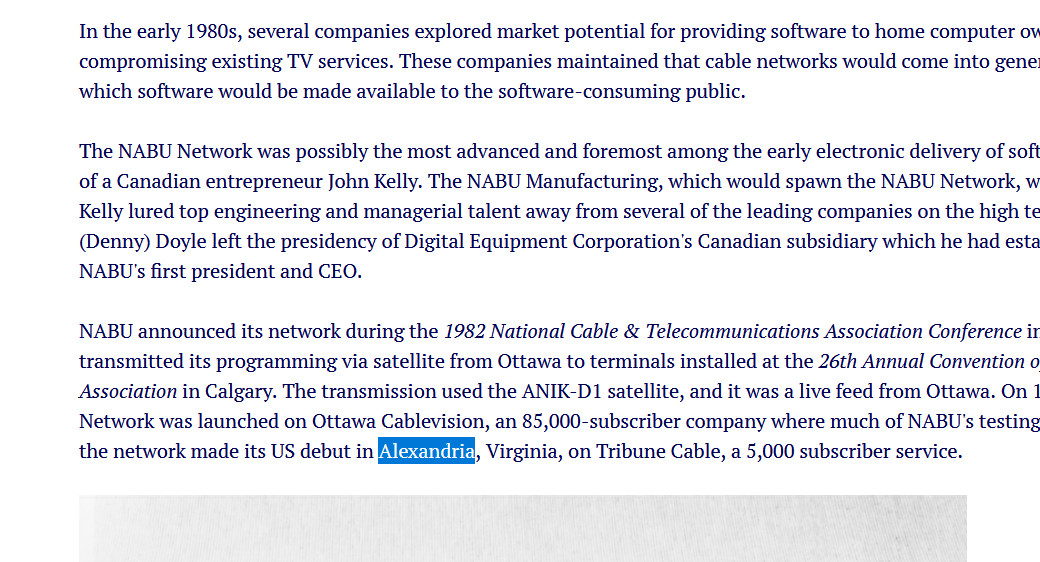
From the NABU Network Reconstruction Project. The beginning of my rabbit hole journey.
It wouldn't be until nearly a month before I got my NABU. Until then, I tried to know everything about the computer. That included going to other YouTube sites such as vintagecomputer.ca, John's Basement, MyGeekyHobby; as was other websites such as Vintage Computer Forum, DJ Sure's website (nabu.ca), and the NABU Network Reconstruction Project. It was at the last website that I found out about NABU in Alexandria, Virginia. However, I didn't think much about it until I visited the website again on Christmas Eve.
The following day, on Christmas, I was on Discord, in the Nabu PC server. On the #general channel, I asked does anybody know about NABU in Alexandria, Virginia. Two people, Nobu_zzz and Geo, provided me articles on NABU. Small as it was, it gave me a good lead into doing some more investigating.
As a person who lived in the DC area for most of my life, I find it fascinating that something like this happened in my area at one time, even though I've never heard about it. But then again, it shouldn't be to surprising, since it is also the same area where QuantumLink got started, which later on became America On-Line, and unlike NABU, that became a success.
In the beginning...
The NABU (Natural Access to Bi-directional Utilities) Network was created in Canada around 1982 by entrepreneur John Kelly. It provided software service, which included games and apps; as well as news and current event information via cable service. It had its start in Ottawa, Canada, but the folks at NABU had expansion in mind.
There were plans for the NABU Network to expand to fellow Canadian cities of Toronto and Montreal, but neither happened. However, the NABU did expand to two other countries outside of Canada. One being in Sowa, Japan; and the other being in Washington D.C. Well, sort of...

The NABU with the ultra-rare floppy drives. What could have been... Courtesy of Ottawa Rewind

City of Alexandria, Virginia. Land of high property prices, pricey burgers, and people who think highly of themselves.
Alexandria, Virginia, a city right below Washington D.C. was the actual place. Tribune Cable, the company that ran cable for Alexandria, made a deal with NABU to offer the Network through their cable service. According to the December 15, 1983 article of Cable Television Business, the NABU Network will offer software and video games (I think they meant applications, not software) via cable, just like the one in Ottawa. However, according to Ed Myers, who was part of NABU's content development department, there were plans that after the introduction, they were planning to add two new software packages in each category every month. Can't say for certain if that ever happened.
Also, he stated that the Network will offer popular software such as a version of the spreadsheet app Lotus 1-2-3, the killer-app of its day. That would have been a total rewrite, since at the time Lotus 1-2-3 was written in 100% x64 assembly, but the NABU did not have an Intel CPU, it had a Zilog z80. Thus, making it totally incompatible to port, and the rewrite would have been a huge task.
Another person involved in the project was Arthur G. Esch Jr. At the time, he was president of ServNet Corporations, the US division of NABU. Besides the article, I couldn't find any more information on the company. In the article, he talked about how 250 subscribers of Ottawa's Cablevision were lining up each day to see how it worked. He also said that the NABU had specifications similar to the Coleco Adam.
I know what Arthur was trying to say here. However, I couldn't help but to cringe hard when he compared the NABU to the Coleco Adam.
Later in the article, Arthur stated that NABU is the answer for those who are interested in computers but are intimidated by the high-tech computer stores. He also said that NABU will get a warm reception. Unfortunately, he was wrong on both counts. In the one year that they were in Alexandria, they got at most 850 subscribers, which at that time Tribune Cable had 5,000 subscribers. That's about 17%.
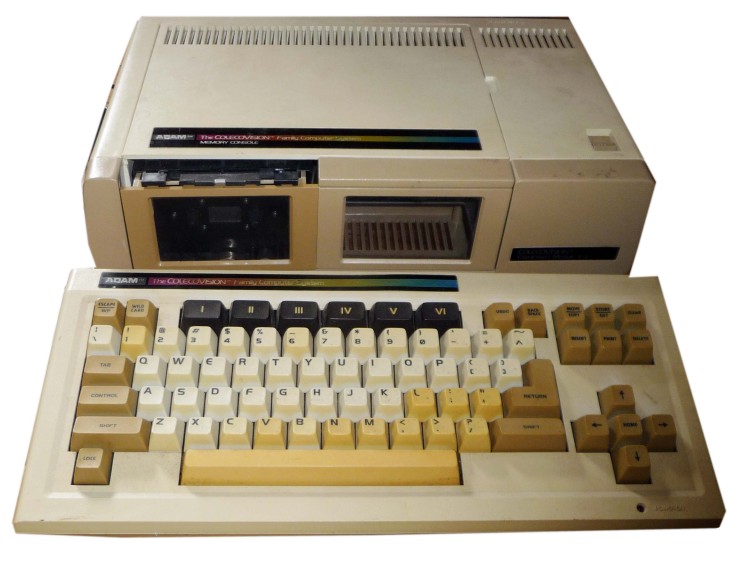
How can anyone compare the stylish and well-built NABU to THIS?! Courtesy of the Centre for Computing History
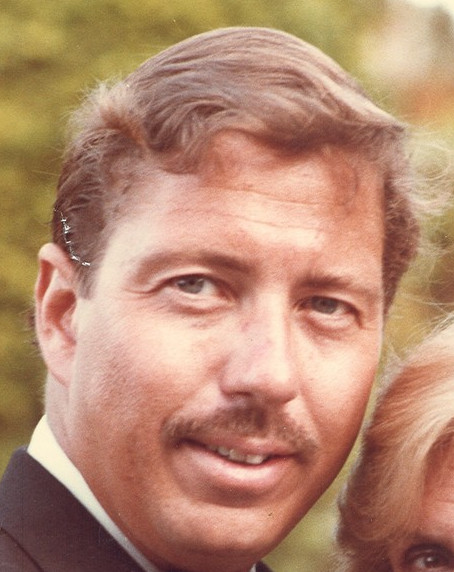
Arthur Esch Jr., from back in the day, when he was rocking that Burt Reynolds/Tom Selleck mustache. Courtesy of LinkedIn.
Now about Arthur and his involvement with NABU, I was able to find some information on a few sites: one was called federalcorporation.ca, which is basically a directory for Canadian corporations, and also on Arthur's own website. He also has a LinkedIn page and a Facebook page.
On
federalcorporations.ca,
it has this about Arthur on their Entity Overview section:
Arthur G. Esch Jr. is a director of federal corporation registered by Corporations Canada - Innovation, Science and Economic Development Canada (ISED). The director address is 228 N. Royal, Alexandria, , United States. The corporation name NABU NETWORK CORPORATION TELEDISTRIBUTION NABU CORPORATION.
Oddly enough, it listed his then-residential address in Alexandria, which he no longer lives; as on his website it states that he now lives in Florida.
It also listed the name of the company and it's alternative name (TELEDISTRIBUTION NABU CORPORATION), as well as the directors. One of which was Thomas E. Wheeler. More on him later.
As for the other websites, the one that actually contained the most information on his involvement in NABU was his own website, and it wasn't much. On his CV page, it states:
In the 1980’s, Arthur was a co-founder of one of the first information superhighways. Under the brand name NABU, the network used Offset-QPSK to deliver a T1 digital signal over satellite to cable television head-ends. The signal was then inserted in the side-band of an unusable television channel and the digital network was delivered to thousands of homes in the United States and Canada. In the home, the first broadband cable modem connected to a personal computer that was the fore-runner of the MSX PC. Families received continuously updated news, community information, educational materials, lifestyle programming, and games.
One thing to mention in the 1983 article, that there were plans to expand the NABU Network to Chicago, because why not? Seriously, anybody who is familiar with Major League Baseball, or newspapers, or with the city of Chicago in general should know who Tribune is and where the company is from. They were probably testing it at Alexandria before introducing it at the Chicago suburbs, because at the time the city of Chicago itself did not have cable.
Only two years earlier, in 1981, the Chicago Tribune Cable, a subsidiary of Tribune Corporation, bought Alexandria Cablevision for $16 million.
I couldn't find any more info from December 1983 to November 1984, so the next article was from November 9, 1984 in the Washington Post.
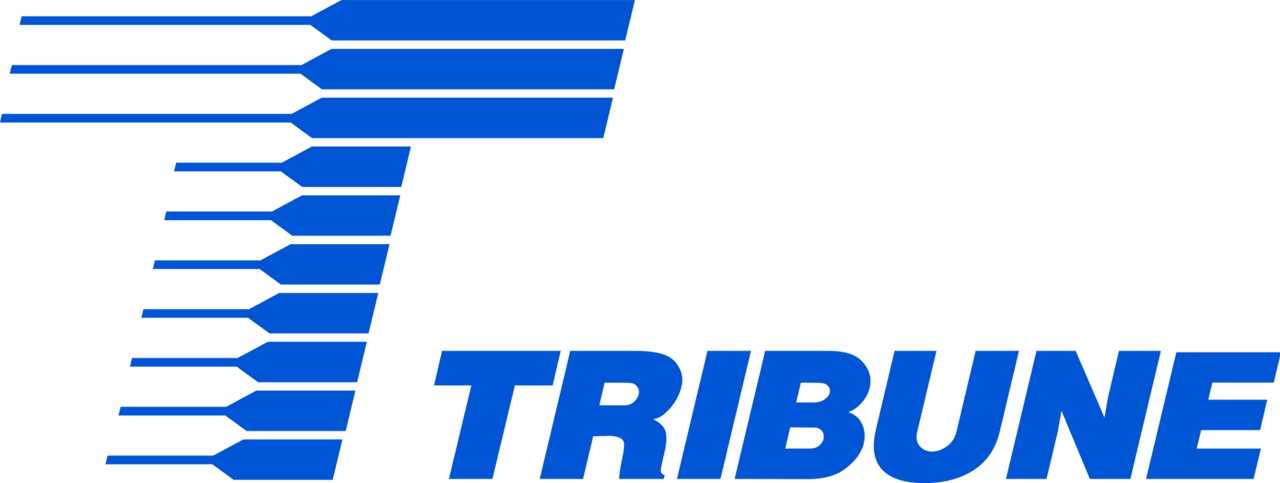
The same company that owned a baseball team that didn't win the World Series for over 100 years. Courtesy of MattJacks2003 of DeviantArt
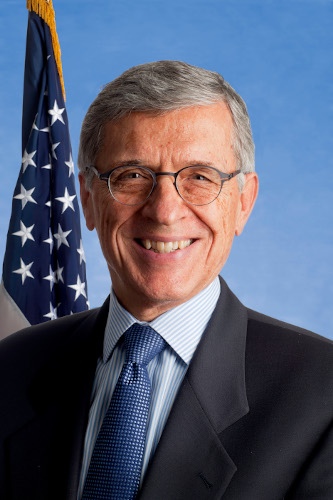
Photo of Thomas E. Wheeler. Sorry, couldn't find one from back in the day with a mustache. Courtesy of Nation Association of Broadcasters
The title is "NABU to Spin Off On Its Own" , and as you can guess, it's about the American branch of NABU planning to break off from the Canadian branch.
By this time, the Canadian end was struggling and the management in Alexandria wanted to become their own entity. This is also the earliest article that mentions Tom Wheeler as the president of the U.S. operations. There is no mention anywhere of when Arthur stepped down or when Tom took over.
And if you are wondering, yes, this is the same Tom Wheeler that would later on become FCC Chairman.
In the article, Tom mentions that they were going to raise 6 million for a national "rollout" of NABU to other areas of the country, and that they have already raised 3 million.
Also in the article, it mentions that
the Alexandria firm plans to introduce a so-called "Universal Adaptor" in 1985, a device that will connect home personal computers nationwide to the NABU system.
But that never happened, nor did the rollout. In an article from the January 1985 edition of Cable Television Business, NABU pulled the plug. Negotiations with the Canadian side broke down. The American end told the subscribers to look to the Canadian side for refunds or further service. I'm sorry, but that ain't right. The least NABU Networks of Alexandria could have done was to take care of their customers.
The failed expectations of the NABU Network did not go in vain, at least not for Tom Wheeler. He would later use his experience in support of Net Neutrality when he became FCC Chairman during the Obama administration.
But all was not lost in the city of Alexandria, for Alexandria would see the rise of a company that was only a few blocks away from the NABU Network building. By the time NABU went under, the company was still experimenting with online using a dail-up. That company was QuantumLink, better known as America On-Line. QuantumLink came out in 1985, a year after NABU.
Their approach was different. Instead of relying on cable companies, they would focus on dialup. And the computers they would be serving were Commodore 64s and 128s, which were the most popular consumer computers at the time.
In an interview with CNET,
Tom said.
Steve [Case] (then-president of Quantum Link/AOL) could build a national footprint immediately, and we had to go from cable operator to cable operator to ask permission to get on the network. That is exactly the situation that entrepreneurs face today. If you can't have open access to the Internet, innovation is thwarted and new services grind to a halt.
It may had been a brief moment, but one area in DC was able to get a taste of the future Ten years before the internet
. This website is to preserve that brief moment in DC Metro area history.
